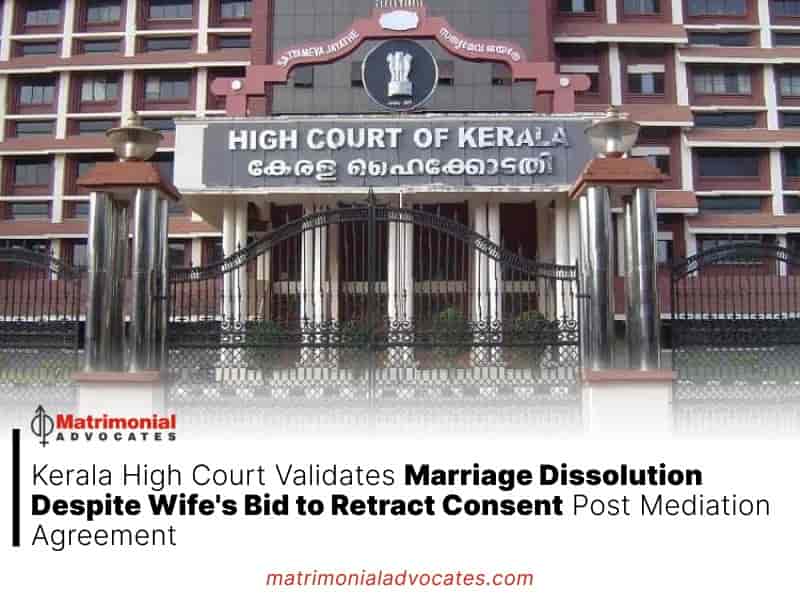
The Kerala High Court affirmed the Family Court’s decision to dissolve the marriage despite the wife’s retraction of consent for the divorce. This judgment was guided by the legal precedents established in Benny v. Mini (2021) and the Bombay High Court case of Prakash Alumal Kalandari v. Jahnavi Prakash Kalandari (2011). The Division Bench, comprising Justice Anu Sivaraman and Justice C Pratheep Kumar, underscored that once mediation leads to a settlement and one party fulfills their obligations, the unilateral withdrawal of consent by the other party is impermissible.
In dismissing the appellant’s appeal, the Court stated:
“Several litigations are pending between the parties before various courts including petition for divorce, custody of child and patrimony. All those cases were settled in mediation and the parties agreed to dissolve their marriage by mutual consent. Accordingly, the parties filed a joint petition for divorce, received part payment, disposed of the pending cases and thereafter at the final stage when the case was taken up for evidence to record the consent of the parties, the appellant withdrew her consent.”
Background: The petitioner in this instance was the spouse of the respondent. They entered matrimony in 2014 but have lived separately since 2018, with multiple legal disputes pending across various courts. In 2022, they resolved all disputes through a mediated agreement that outlined settlement terms. As per this agreement, the respondent pledged to pay sixteen lakhs rupees to the petitioner, granting her permanent custody of their child, and both parties consented to dissolve their marriage mutually.
While they initiated a mutual divorce petition, the petitioner later retracted her consent for divorce. She contended that the mediated agreement was not entered into voluntarily or with her complete consent and that she did not wish to terminate her marriage with the respondent. Conversely, the respondent argued that he had already made a partial payment of the settlement amount in accordance with the mediated agreement. Citing the precedent established in Benny v. Mini (2021), the Family Court granted a decree dissolving the marriage.
Appeal to High Court: Displeased with this ruling, the petitioner approached the High Court to contest the Family Court’s judgment, which dissolved her marriage with the respondent.
Court Observations: The petitioner referenced Jayaraj R. v. Kaya G. Nair (2023) to argue that parties retained the right to retract their consent for divorce until the decree was issued. In response, the respondent countered, asserting that the petitioner had no valid grounds for withdrawing her consent after both parties had mutually agreed to a mediated settlement containing terms of agreement.
The Court stated that the Family Court granted divorce by relying upon the judgements in Benny (supra) and Prakash (supra). It said: “…Family Court held that unilateral withdrawal by one party after the other party has performed his part of the terms in the memorandum of agreement is a sharp practice which cannot be permitted or tolerated for a moment as it would shatter the faith of the litigants in the justice delivery system and make a mockery of the alternative dispute resolution mechanism.”
Considering the specific circumstances of the case, the Court affirmed that the parties fell under the precedents established in Benny (as previously noted) and Prakash (as previously mentioned). As a result, it upheld the Family Court’s ruling to dissolve the marriage despite the appellant withdrawing her consent. Consequently, the Court dismissed the appeal.





